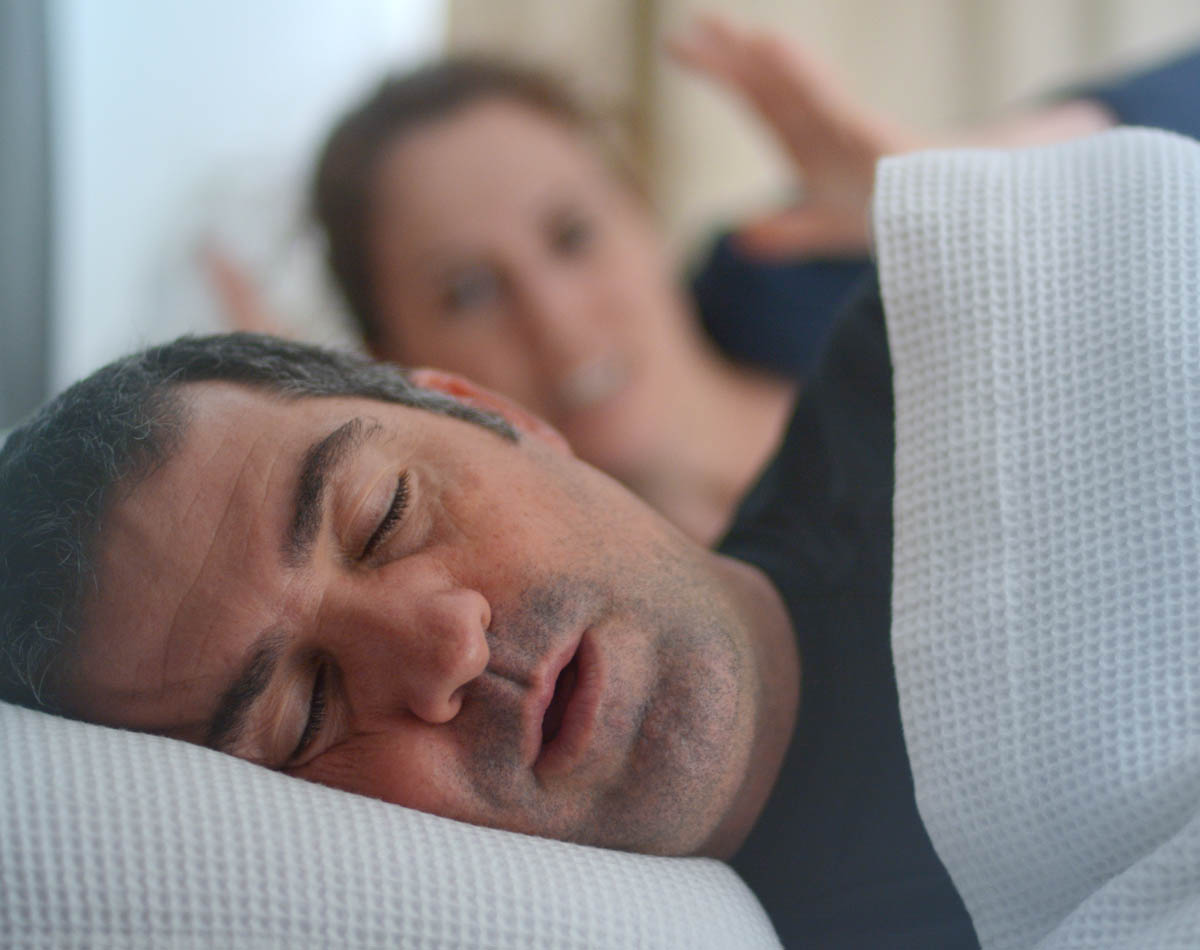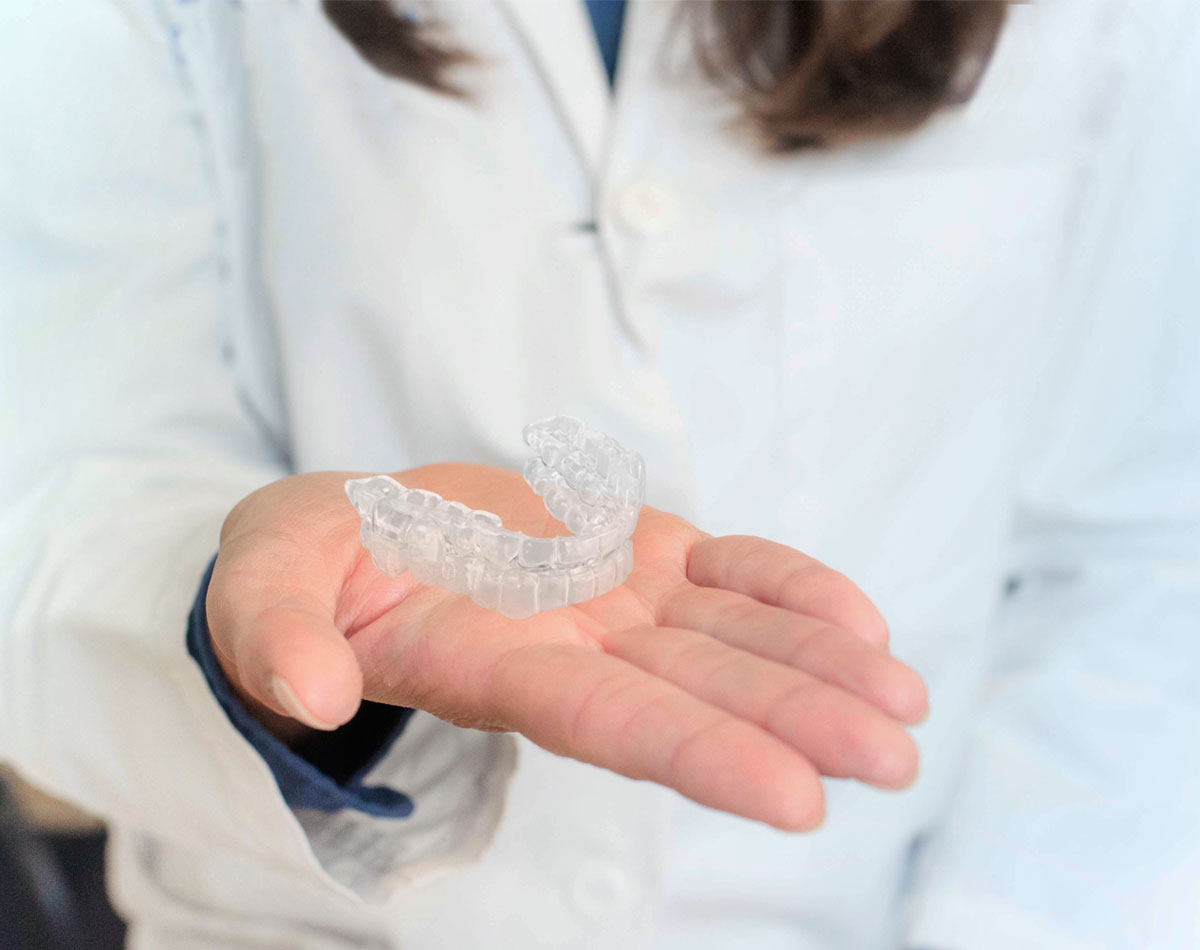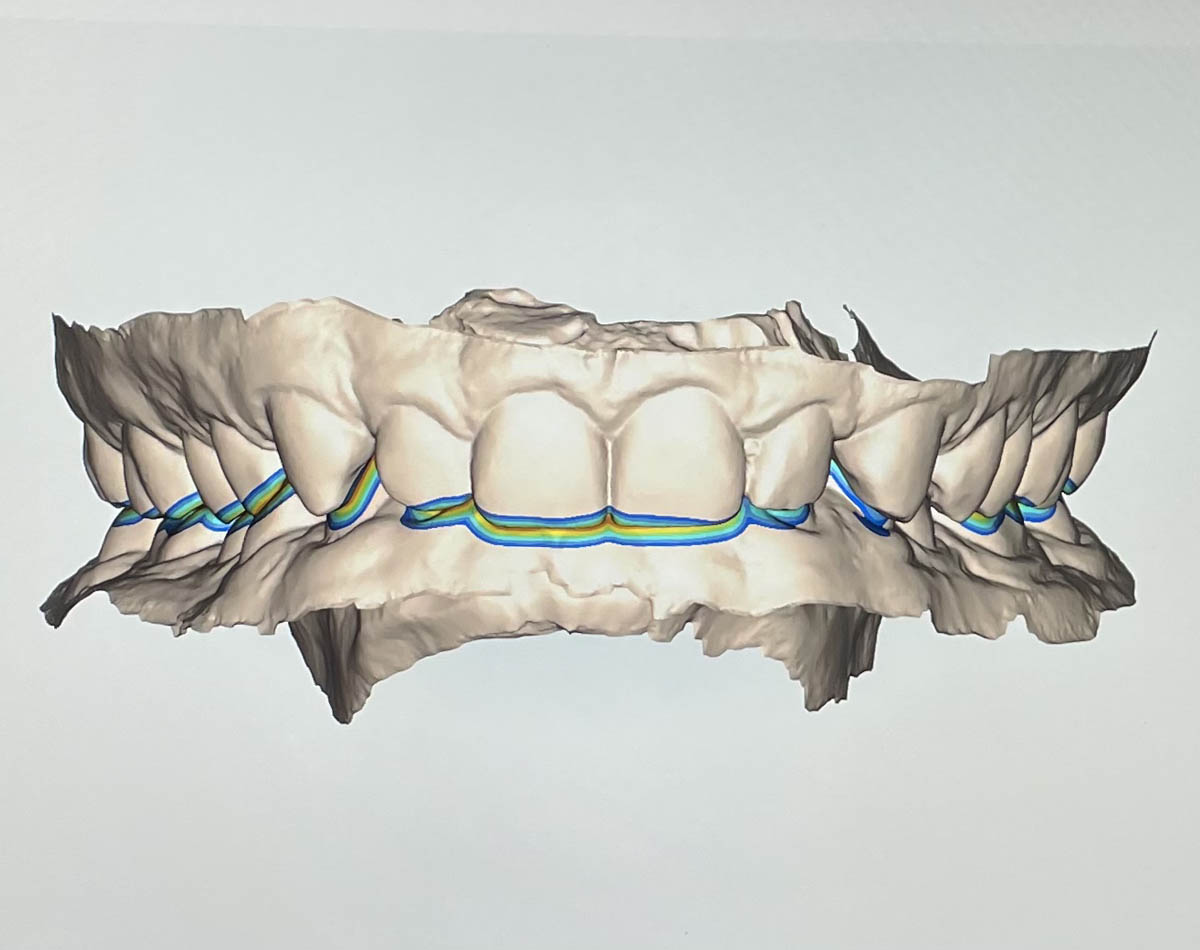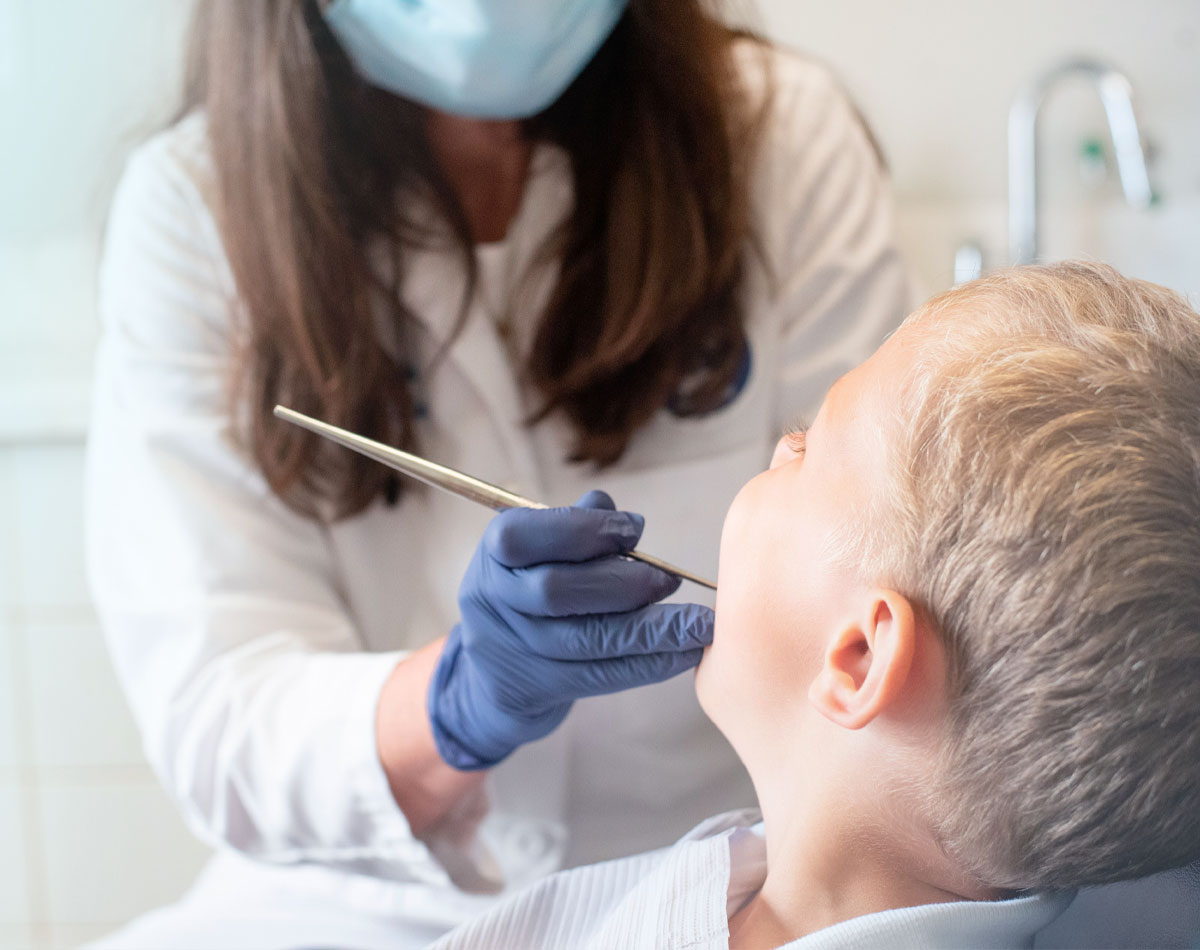How are TMD/TMJ disorders diagnosed?
Diagnosis begins with a comprehensive face, head and neck examination, including jaw range of motion, joint sounds and palpation of your muscles to find areas of tenderness/pain. Your dentist may also require additional testing which may include x-rays, CT scans or MRI to evaluate your TMJ.
No single cause of TMD has been identified. Some factors that have been associated with TMD include systemic disease (Lyme disease, tumors, fibromyalgia, rheumatoid arthritis), trauma (direct impact, whiplash injury, clenching/grinding teeth). Stress, anxiety and depression can also be contributing factors, but in most cases more than one factor contributes to developing this type of pain.
Talk to your dentist if you are experiencing headaches, ear pain, ear ache, clicking, popping sounds of the jaw joints, pain in the cheek, limited mouth opening, inability to open the mouth smoothly, or jaw deviation to one side.
How are TMD/TMJ disorders evaluated?
Your dentist will complete a comprehensive evaluation of the face, head and neck, including a review of your medical, dental and pain history.
How are TMD/TMJ disorders treated?
Your doctor may recommend an oral appliance or mouthguard, physical therapy, posture training, ice and heat packs, diet changes to rest jaw muscles, behavior changes and relaxation techniques.
What is TMD/TMJ?
TMD is a condition with a diverse group of problems involving the temporomandibular joint (TMJ) and surrounding muscles, ligaments, tendons and bone. The cause could involve multiple factors, including environmental, social, emotional and biologic triggers.
The temporomandibular joint connects your skull to the lower jaw, this joint allows movements to open and close your mouth, slide the jaw backward and forward, and move the jaw side to side.
What are the symptoms of TMD/TMJ?
Symptoms include pain and tenderness in your jaw, locking of the jaw joint, pain or difficulty chewing, ear pain, and headaches. If you have pain in the jaw, or if have you difficulty moving, opening and closing your jaw, or any of the symptoms described, talk to your dentist to discuss treatment options.
What are some of the treatments used to relieve TMD/TMJ pain?
Most patients improve with a combination of non-invasive treatments such as oral splint/mouthguard made by your dentist, the application of ice/heat, soft food diet, relaxation techniques, medications including anti-inflammatory drugs, muscle relaxants, and physical therapy.
Payment options for TMJ pain treatment
We understand that sometimes your ideal treatment plan may not fit your budget. That’s why Worcester Sleep Dentistry offers affordable third-party payment plans with deferred interest through CareCredit or payment over time with Sunbit. This way you can get the treatment you need, when you need it, and pay over time with our convenient payment options.
Sleep Dentistry Services
Get In Touch With Us
Call Us
(508) 731-4479
Email us
Book An Appointment
Click the button below to book an appointment online:
Other Sleep Dentistry
Disorders
Snoring
Snoring can be a symptom of obstructive sleep apnea, but not all people who snore have obstructive sleep apnea. Find out the difference.
Sleep Apnea
12-18 million adults in the US have obstructive sleep apnea, which causes the individual to stop breathing up to a hundred times a night.
Bruxism
Bruxism is the habit of clenching and grinding your teeth. Bruxism can occur during sleep and during periods of stress and tension.
For Children
If left untreated, obstructive sleep apnea in children can result in problems such as behavioral issues and cardiovascular problems.






